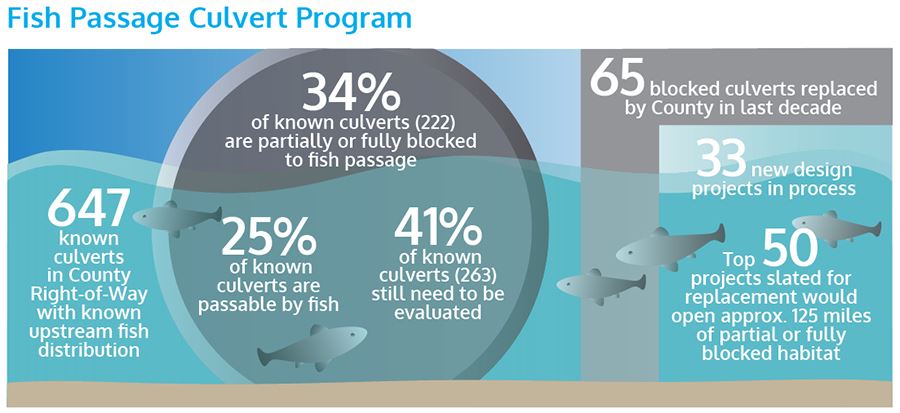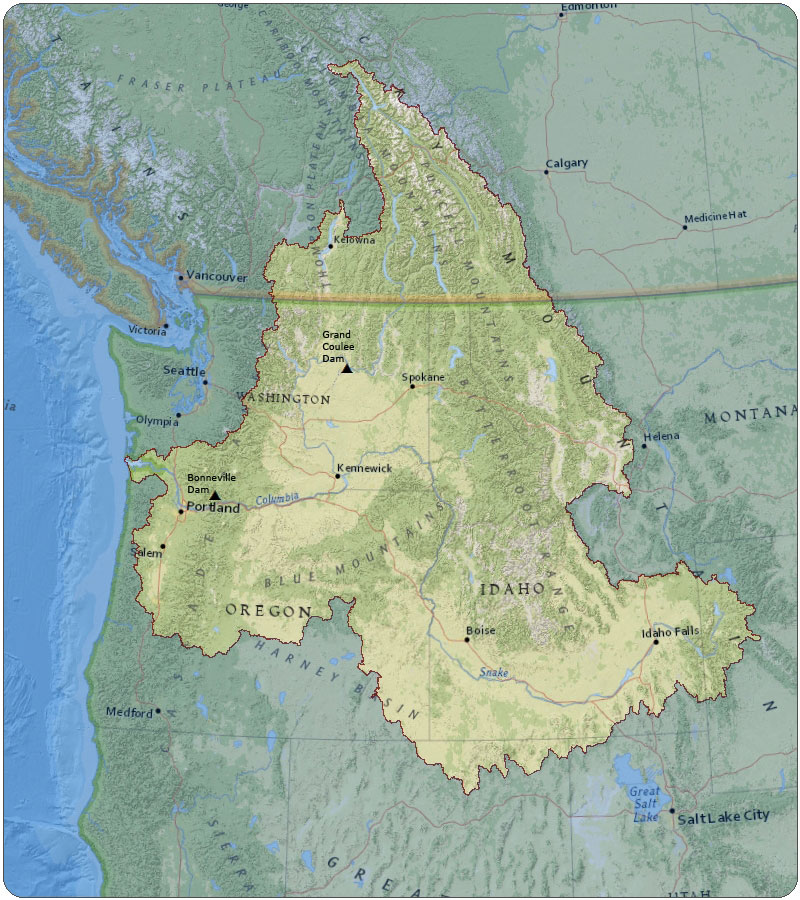New Year, New Challenges A Letter from the Executive Director, Trish Rolfe The new year…
Culvert Case Update: A Victory for Tribal Treaty Rights
by Dan Von Seggern
On June 11, an equally divided United States Supreme Court affirmed the 9th Circuit Court of Appeals’ decision in Washington v. United States (the “culvert case”). This long-running case, filed in 2001, involved fish passage-blocking culverts under roads owned by the State of Washington (or “the State”). The United States and a group of Indian Tribes filed suit seeking an injunction requiring the State to repair culverts under its control to restore access of fish, including salmon and steelhead, to more than 1,000 miles of upstream habitat. Restoring passage is expected to result in production of several hundred thousand more adult fish annually. This will be a significant boost for the State’s ailing salmon runs and for those who depend on the runs.
In 2013, U.S. District Court Judge Martinez found for the Tribes and ordered that the culverts be repaired. Judge Martinez held that the 1854-5 Stevens Treaties, by which the Tribes ceded vast amounts of land for settlement, would have been understood by the Tribes at the time as a guarantee that there would forever be salmon available to them. He further held that the fish-blocking culverts were an impermissible infringement on the Tribes’ treaty rights. The State appealed to the 9th Circuit Court of Appeals, which affirmed the decision.
The Supreme Court (without the participation of Justice Anthony Kennedy, who had been involved in an earlier aspect of the case) affirmed the decision without a written opinion. This decision means that the Order requiring the culverts be removed or repaired will stand and fish will again have access to the habitat which they need to recover and thrive. This decision is also a significant victory for Tribal treaty rights, in that the right to fish is now understood to include the right to habitat suitable for fish production.





